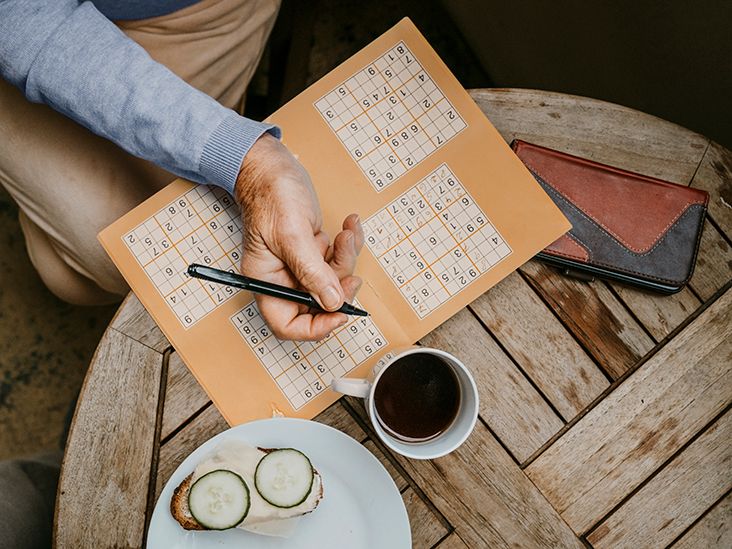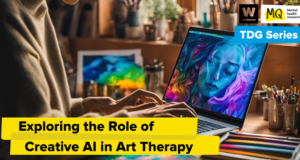
Engaging in brain exercises, such as completing a sudoku puzzle, enhances cognitive abilities, boosts memory, and promotes overall mental well-being.
We all experience mental fog occasionally, but factors like stress, aging, inadequate sleep, or an unhealthy lifestyle can intensify this cognitive haze. This can have noticeable effects on memory, problem-solving skills, and overall cognitive function.
Engaging in brain-sharpening exercises can boost mental agility and help your brain stay focused and resilient. Here are some well-researched exercises and games to consider.
Learning a new language can benefit the brain by:
- improving cognitive functions
- enhancing memory
- boosting problem-solving skills
An easy way to start is by using language learning apps or online courses, which provide a structured and convenient approach to acquiring a new language.
One
When reading, actively engage with the material by taking notes or highlighting key points. This method may:
- sharpen focus
- enhance comprehension
- improve memory retention
A high-school-led study published in the Journal of Student Research aimed to identify the most effective note-taking method among students aged 13-18. Participants were assigned to type, handwrite, or take no notes while watching a video, followed by assessments.
Results indicate that typing notes was the most efficient method, resulting in the highest memory retention of the material.
A
- cognitive processes: attention, working memory, and executive functions
- metacognitive abilities: organizing, planning, and problem-solving skills
But research is mixed. According to a large 2021 study, mindful breathing meditation alone is suggested to not be effective in improving executive functioning, such as attention, working memory, and long-term memory.
A 2018 review suggests that mindful breathing is not superior to other methods, but it may be better than doing nothing at all.
To practice mindful breathing, sit in a quiet place, close your eyes, and focus on your breath. Inhale deeply, counting to four, then exhale slowly.
Next, concentrate on the sensation of your breath, which can improve your concentration and reduce stress.
Playing chess demands strategic planning and focused attention, providing a comprehensive mental workout for the entire brain.
An analysis of 24 studies suggests that chess instruction can enhance math achievement and overall cognitive ability in primary and middle school students, with the minimum effective training threshold being approximately 25-30 hours.
Conveniently, there are chess apps online, so you can play on your phone in your spare time.
Dual n-back training is a cognitive exercise where you’re required to remember and recall both visual and auditory stimuli. In this task, you have to track the position of visual stimuli, like squares on a grid, and the identity or location of auditory stimuli, like sounds or letters, in a sequence.
As the difficulty increases, you’ll need to remember and recall stimuli from multiple positions back in the sequence. This training is thought to enhance working memory and cognitive abilities.
One small
You can find dual n-back exercises online on various websites and apps dedicated to brain training.
Sudoku is a logic-based puzzle that involves filling a 9×9 grid with numbers so that each column, row, and 3×3 subgrid contains all the digits from 1 to 9 without repetition. It requires both logic and attention.
A small
The medial PFC became particularly active when their brains were searching for logical rules and strategies to solve the Sudoku puzzle.
The findings suggest that Sudoku could be used for cognitive training, especially for neuropsychiatric disorders involving the PFC, including:
- depression
- bipolar disorder
- Alzheimer’s disease
Go is an ancient Chinese board game that involves complex decision-making, spatial reasoning, and long-term planning. Playing Go can help improve your:
- cognitive skills
- strategic thinking
- concentration
There are several apps where you can play Go on both iOS and Android devices.
One
The CRT score was closely related to playing strength but not playing frequency.
Frequent Go players also tended to possess a stronger theory of mind, which is the ability to understand and attribute mental states, like beliefs and emotions, to yourself and others, contributing to their social cognitive skills.
Brain exercises, from chess to dual n-back training, serve as dynamic tools to keep our minds agile and resilient. But research is mixed and further
They may enhance memory, problem-solving, and cognitive abilities. They may also contribute to structural changes in the brain, fostering neural reserve.
For convenient access, explore online platforms and make enhancing cognitive abilities a regular part of your routine. Your brain will thank you for the workout!




